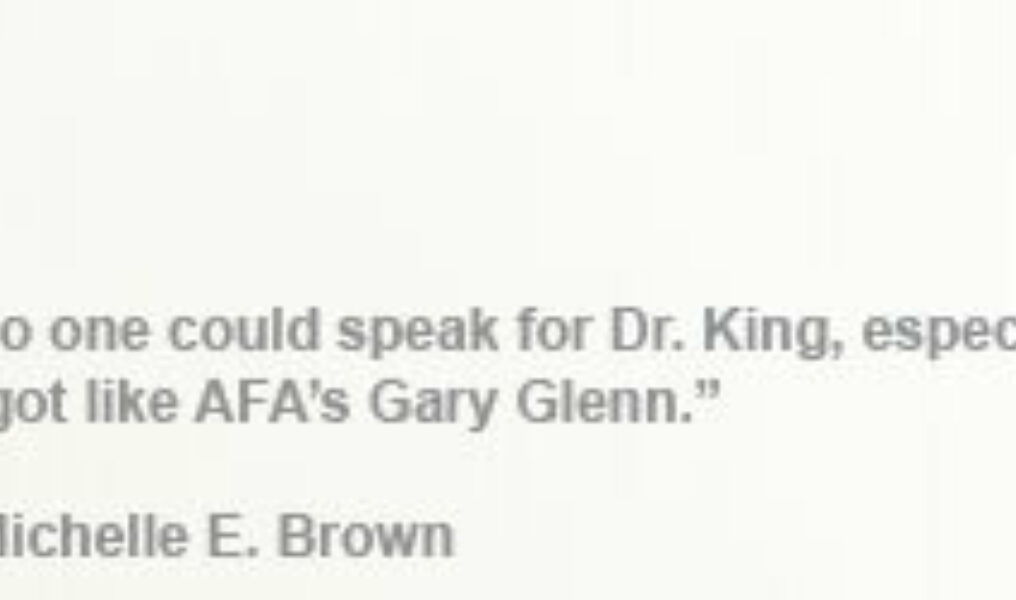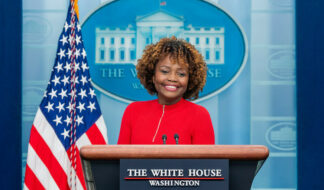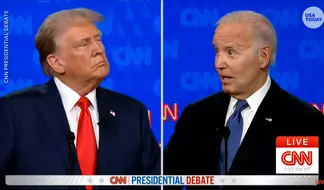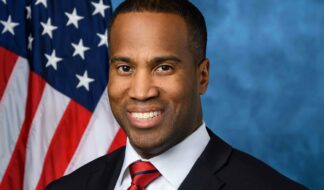
At last February! The holidays are over. I've lost those five pounds that found their way to my thighs. I've stopped writing 2010 on my checks and I've started the countdown to Valentine's Day. But the most important thing of all is that February is Black History Month.
I first became aware of Black History Month in the late 1960s when the civil rights movement was at its peak. Not just me, but my neighbors, parents and relatives were all celebrating being black and proud. Our accomplishments were an integral part of the American experience and transcended the dark shadow of slavery.
Black History Month helped me become a proud African American, knowing I had been opened endless doors for where I could go, what I could accomplish and who I could be. As I became aware that I was a lesbian I looked into my black history and again found myself.
So you see, there has never been a question in my mind that the civil rights/human rights movement was inclusive of everyone – my black family as well as my gay family.
Gay African Americans were active in the church, active in the community, neighbors and relatives sitting around the Thanksgiving dinner table. We were community.
Needless to say, the recent wave of homophobia flowing through the African American community, especially in black churches, has been disturbing. How can we honor African Americans while denying the influence, leadership and greatness of those within our community who happen to gay?
This homophobic derangement has found a home in the doctrine of conservatives both black and white, who use any reference of the gay civil rights movement to the black civil rights movement and Rev. Martin L. King Jr.'s philosophy of equality for all as fodder for hate speak and divisiveness between blacks and the gay community at the expense of African American LGBTs.
In a recent interview, Gary Glenn, head of the American Family Association of Michigan, said Dr. King, "having been a conservative, southern Baptist pastor in the '50s and '60s, whose view from a biblical standpoint on the question of homosexual behavior would've been unquestionable, would have opposed it."
No one could speak for Dr. King, especially a narrow-minded bigot like Glenn. I could not find any specific reference in Dr. King's speeches and writings directly referring to homosexuality, but I did find the following quote that might answer the question.
Dr. King said, "The ultimate measure of a man is not where he stands in moments of comfort and convenience, but where he stands at times of challenge and controversy."
At times of challenge and controversy, Dr. King stood with the likes of Andrew Young, Julian Bond, Jesse Jackson and Bayard Rustin: Men of honor, committed to fighting for equality for all Americans.
Andrew Young is a politician, diplomat and pastor. He is the president of the National Council of Churches USA, a member of the Southern Christian Leadership Conference and a lifelong United Church of Christ member. He has said the denomination's affirmation of the full civil and religious equality of same-gender marriage would be a continuation of its historic witness for justice and equality.
Julian Bond is a social activist and leader in the civil rights movement, politician, professor and writer, co-founder of the Student Nonviolent Coordinating Committee, president of the Southern Poverty Law Center and past chairman of the NAACP. He said before the New Jersey Senate and on several other occasions that "Gay rights are civil rights."
Rev. Jesse Jackson, Sr., another civil rights activist, Baptist minister and former candidate for the Democratic presidential nomination, said, "Marriage is based on love and commitment – not on sexual orientation. I support the right for any person to marry the person of their choosing."
And Bayard Rustin, a civil rights activist, was the prime architect of the civil rights movement. He organized the Freedom Rides and organized the 1963 March on Washington. He counseled Dr. King on the techniques of nonviolent resistance and was an openly gay man.
When not with these men, Dr. King sought the counsel of his wife Coretta Scott King, who with her daughter Yolanda, his first-born, carried on his work. Both were proponents for civil rights for the LGBT community.
No one can predict what Martin Luther King Jr. would have said had he not been shot on that Memphis balcony in 1968.
During Black History Month, I believe Dr. King would want me to remember the struggle, the beauty, the perseverance of the African American community, and all its members, gay and straight.
A Southern Baptist minister, contrary to Glenn's opinion, would understand the real message hidden in the pages of the Bible, forgotten by many who preach hate in the name God. The message is simple – "injustice anywhere is a threat to justice everywhere."










